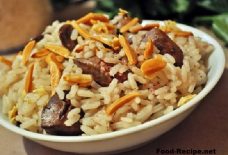Samihah Zaman
Headaches during fasting are avoidable
Ramadan is upon us and so, too, are the throbbing headaches most people experience during the first few days of fasting.
Triggered by a combination of factors, including dehydration, caffeine withdrawal, less sleep and low blood sugar, the headaches are however not unavoidable if a few simple measures are taken, doctors in the capital have said.
Dr Ebrahim Elimam, consultant for diabetes, endocrinology and internal medicine at HealthPlus Diabetes and Endocrinology Centre, said that up to 15 per cent of his patients at the start of Ramadan complain of these headaches, and ask for advice to overcome them. A study conducted in Riyadh, Saudi Arabia, also found that 41 per cent of the 116 fasting people who were surveyed experienced headaches in Ramadan.
“One of the most useful safeguards against these headaches is to drink enough water and fluid when not fasting,” he said.
When fasting, the lack of water affects the brain, which is made up of 75 per cent water and is therefore very sensitive to the amount of fluid available to it.
“When the brain detects that the water supply is too low, it produces histamines [compounds released by cells that cause contraction of smooth muscle and dilation of capillaries] to ration and conserve water in case the water shortage continues for a long time. These histamines directly cause pain and fatigue, which is experienced as a headache and lowered levels of energy,” Dr Elimam explained.
The doctor recommended that people consume enough fluids, and also cut down on the level of diuretic substances, which increase the passing of urine and loss of water from the body.
“Caffeine-based drinks have a diuretic effect, and caffeine withdrawal, too, contributes to the headaches. So, it is best to limit and reduce the consumption of caffeine in the weeks leading up to and during Ramadan,” Dr Elimam said.
A strong cup of coffee or tea during suhour, the predawn meal, could also help those who experience a lot of caffeine withdrawal.
Dr Fawad Khan, family medicine consultant and medical director for Al Noor Medical Centres in Abu Dhabi, also stressed that it is important to eat foods that release sugar gradually into the bloodstream, such as complex carbohydrates.
“Some people make the mistake of eating a sugar-heavy meal at suhour, thinking that this blood sugar will be sustained through the day. Instead, the sugar is released into the blood too quickly, leaving them fatigued when the blood sugar level drops rapidly,” he said.
Regulating sleep cycles is also important, despite the changes that Ramadan brings, the doctors advised.
“There is a cultural tendency to stay up throughout the night, even engaging in activities other than worship. But getting adequate sleep is important to ensure that fatigue does not act as a trigger for headaches. So, instead of watching TV or visiting Ramadan tents, it is best to sleep for a while between iftar and suhour,” said Rahma Ali, clinical dietitian at Burjeel Hospital in Abu Dhabi.
Dr Elimam added that people who suffer greatly from the headaches can also find it helpful to take paracetamol tablets at suhour after consulting a doctor.
Avoiding Ramadan headaches
• Drink enough water and fluids.
• Limit the intake of caffeinated drinks before and during Ramadan.
• Eat a balanced meal at suhour. Recommended foods include yoghurt, wholemeal bread, vegetables, and fruits that release sugar gradually.
• Drink a strong cup of coffee or tea at suhour if required.
• Consult a doctor and ask if a paracetamol tablet at suhour could help.
• Try to fit in about seven hours of sleep daily.


